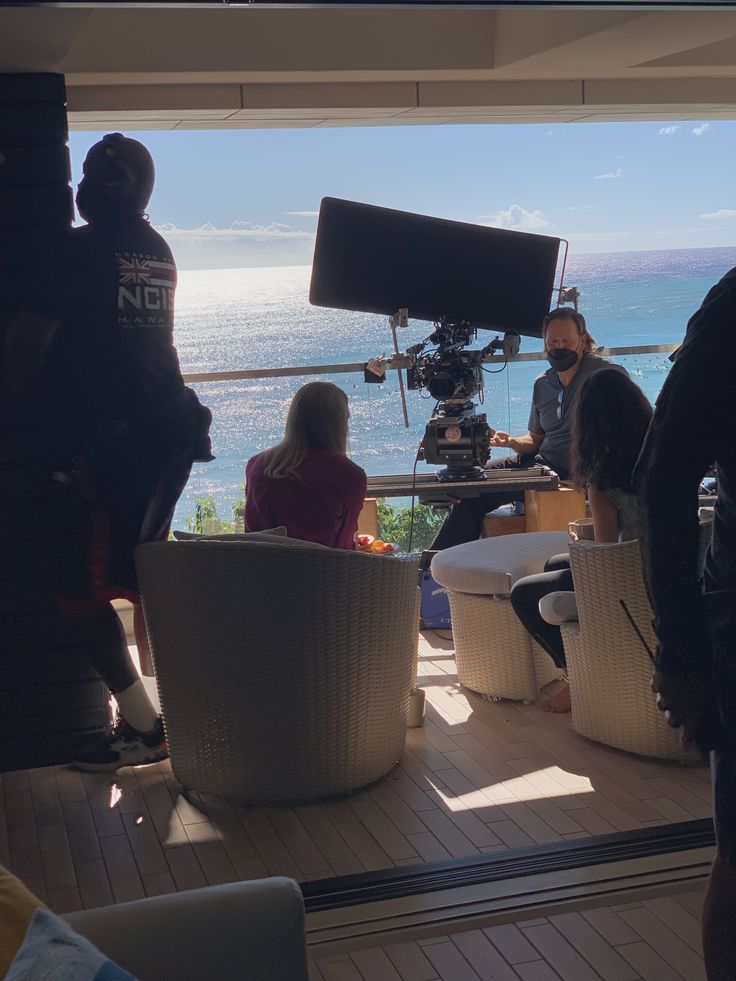
When CBS announced NCIS: Hawai’i, fans were thrilled. Not only was the franchise expanding to the breathtaking landscapes of the islands, but it also introduced Vanessa Lachey as the first female lead in NCIS history. This was a milestone. Representation mattered, and the show broke new ground. But as episodes aired, critics and fans seemed torn. Some praised the bold direction, while others felt the execution fell flat.
So, let’s dive into the highs, the lows, and the legacy of NCIS: Hawai’i.
The Historic Move – Vanessa Lachey Leading NCIS: Hawai’i
The NCIS franchise is one of the most recognizable in television history, with spinoffs like NCIS: Los Angeles and NCIS: New Orleans holding their ground. But what set NCIS: Hawai’i apart was its historic casting decision.
A Female Lead for the First Time in NCIS History
Vanessa Lachey stepped into the role of Jane Tennant, a Special Agent in Charge. This marked the first time a woman led an NCIS spinoff. In a franchise long dominated by male leads—Mark Harmon in NCIS, Chris O’Donnell and LL Cool J in Los Angeles, and Scott Bakula in New Orleans—this was a turning point.
Representation Beyond Gender
Lachey’s casting wasn’t just about gender. As a woman of mixed heritage—Filipino and American—her presence brought much-needed diversity to a series that had often leaned on familiar formulas. Representation matters, and NCIS: Hawai’i made history with this casting choice.
The Setting – Hawai’i as a Character Itself
If you’ve ever been to Hawai’i or even seen it on screen, you know it’s more than just a backdrop. The producers leaned heavily on the island’s beauty, trying to make it almost a character in its own right.
Breathtaking Visuals
From the lush green mountains to the endless beaches, the show painted Hawai’i in stunning detail. The visuals gave fans a sense of escape.
The Cultural Angle
But Hawai’i isn’t just about sunsets and surfboards. Its culture, history, and community are rich. NCIS: Hawai’i attempted to weave in these elements, though critics argue it sometimes felt more like a postcard than a cultural deep dive.
The Mixed Reception – What Critics Really Said
Here’s where things get tricky. While CBS marketed the series as a fresh take, reviews weren’t universally glowing.
Praises from Fans
-
Fans celebrated the groundbreaking casting.
-
Many enjoyed the lighter tone compared to other NCIS shows.
-
Viewers appreciated the team dynamic led by Tennant’s character.
The Criticisms
-
Some said the storylines lacked originality, feeling recycled from earlier NCIS versions.
-
Others felt the execution didn’t live up to the potential of its historic casting.
-
A few critics pointed out that the chemistry felt forced in the early episodes.
Vanessa Lachey – Rising to the Challenge
Taking the lead role in such a massive franchise was no easy task. Lachey knew the stakes were high.
A Fresh Leadership Style
Unlike the gruff, stoic Gibbs (Mark Harmon), Tennant brought empathy and balance. She wasn’t afraid to show her vulnerabilities, especially as a working mom juggling family life and a demanding career.
The Pressure of Breaking Ground
Lachey herself admitted in interviews that she felt the weight of making history. Carrying the NCIS brand on her shoulders, while also representing women and minorities, was both empowering and daunting.
Comparing NCIS: Hawai’i to Its Predecessors
The challenge with spinoffs is always comparison. Did NCIS: Hawai’i live up to its siblings?
Different from the Darker Tone of NCIS
Where NCIS often leaned into serious, gritty cases, Hawai’i had a lighter, sunnier vibe. This made sense given its location but divided fans who craved intensity.
The Team Dynamics
Every NCIS show thrives on the chemistry of its team. Hawai’i took time to find its rhythm, but eventually, characters like Lucy Tara and Kai Holman grew on viewers.
Why Audiences Were Divided
So why were fans and critics split?
Expectations vs. Reality
Fans expected groundbreaking storytelling to match the groundbreaking casting. Instead, they got familiar formulas in a new setting.
Balancing Representation with Storytelling
While the casting decision was historic, some felt the writing didn’t fully leverage Lachey’s presence or explore the deeper cultural elements of Hawai’i.
The Impact on Representation in Television
Regardless of mixed reviews, one thing stands: NCIS: Hawai’i made history.
Inspiring the Next Generation
Young women—especially women of color—finally saw themselves represented as leaders in a major franchise. That impact can’t be underestimated.
Setting the Stage for Future Projects
Hollywood is watching. Shows like NCIS: Hawai’i push the industry to rethink its casting decisions and move toward diverse, inclusive storytelling.
The Legacy of NCIS: Hawai’i
Even if critics were divided, the show carved its place in NCIS history.
Breaking the Mold
It will always be remembered as the series that dared to break the NCIS mold with a female lead.
A Cultural Shift
In the broader TV landscape, it signaled a cultural shift—audiences demand representation, and networks must deliver.
Lessons Learned from the Show’s Execution
What can we take away from the mixed execution of NCIS: Hawai’i?
Representation Isn’t Enough
Casting is crucial, but audiences want substance and storytelling to back it up.
Setting Matters, but Story is King
Hawai’i is gorgeous, but without compelling plots, the scenery alone can’t carry the show.

Conclusion – Did NCIS: Hawai’i Truly Deliver?
At the end of the day, NCIS: Hawai’i is a paradox. It made history with Vanessa Lachey, inspiring countless fans, but it also stumbled in execution, leaving critics underwhelmed. Still, the series deserves credit for breaking ground and expanding representation in mainstream television.
Like a wave crashing against the shore, NCIS: Hawai’i left its mark—even if it didn’t reach the heights everyone expected.
FAQs
1. Why was Vanessa Lachey’s role in NCIS: Hawai’i historic?
Because she became the first female lead in the NCIS franchise, breaking a long-standing tradition of male-dominated leads.
2. Why did critics have mixed reviews of NCIS: Hawai’i?
While the casting was groundbreaking, critics felt the storytelling was formulaic and lacked originality.
3. Did NCIS: Hawai’i represent Hawai’ian culture well?
The show showcased beautiful landscapes but was sometimes criticized for not fully diving into the depth of local culture.
4. How was NCIS: Hawai’i different from the original NCIS?
It had a lighter, sunnier tone compared to the darker, more intense feel of the original series.
5. What’s the biggest legacy of NCIS: Hawai’i?
It will always be remembered as the show that introduced the first female NCIS lead and pushed the franchise toward inclusivity.